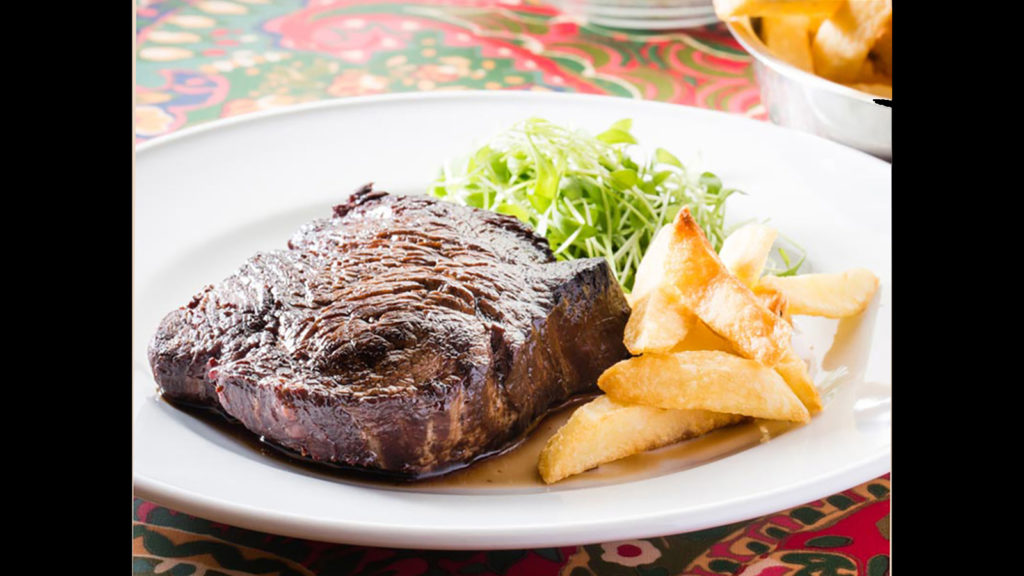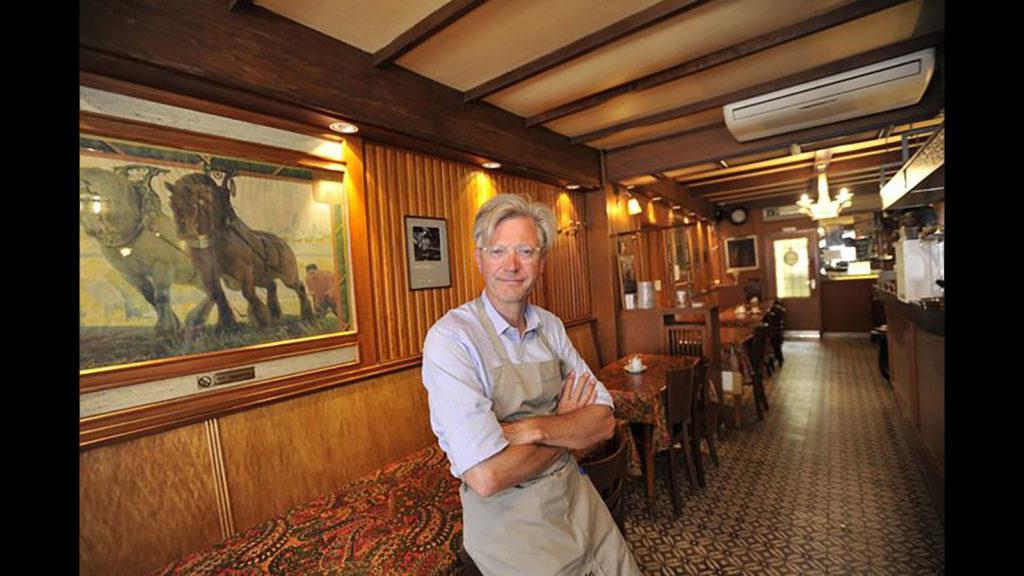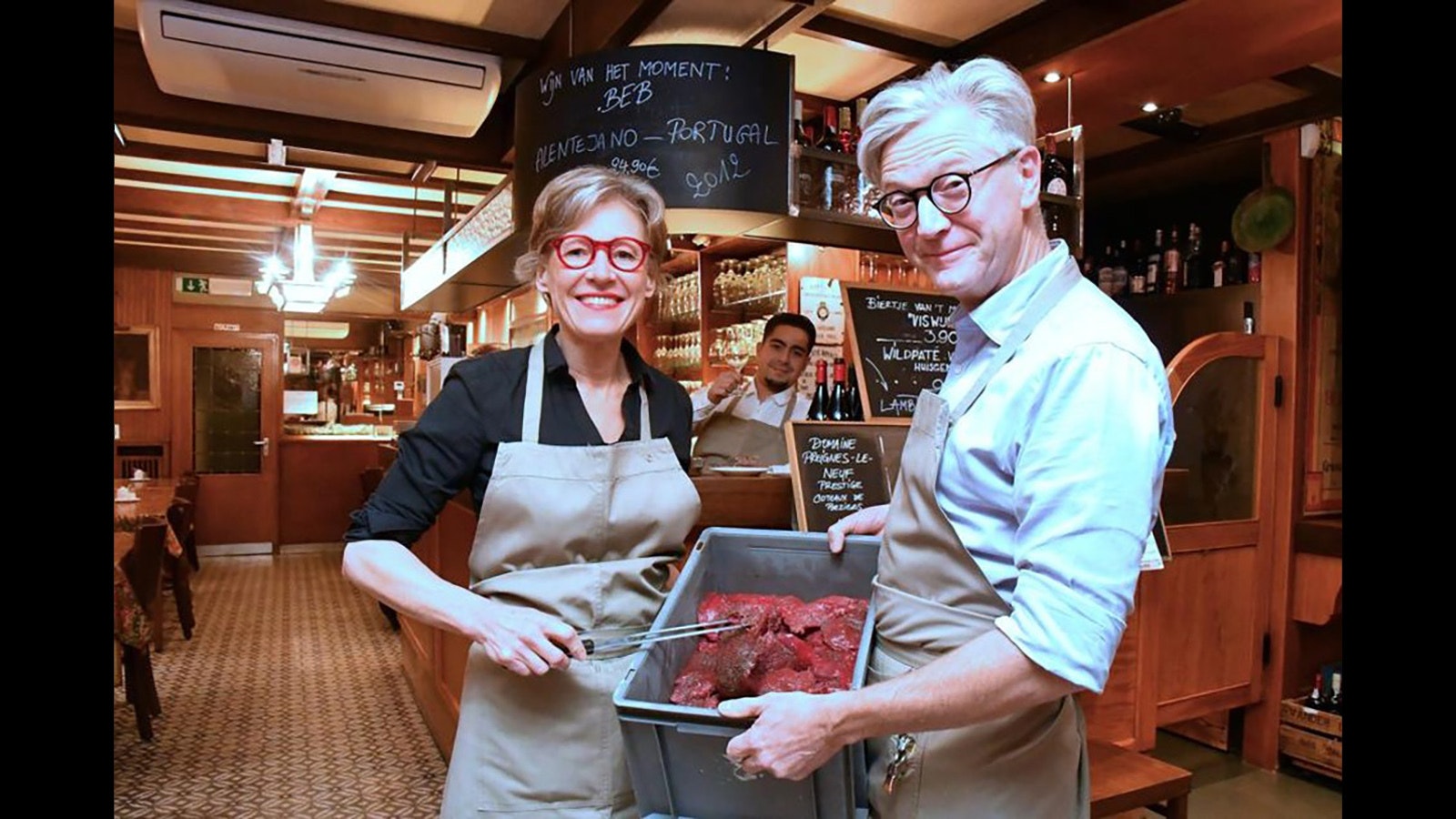In Vilvoorde, Belgium, horse meat has long been a staple with the town’s large, working-class families, says a chef there who serves dishes made from horse.
“On the whole, it’s always a bit of a controversy, the consumption of horse meat,” Alfons Gulickx told Cowboy State Daily in a telephone interview. “People frequently view the horse as sort of a pet.”
If American horse slaughterhouses are re-opened and some wild Wyoming mustangs are sent to slaughter, Gulickx said he’d be open to serving that horse meat in his kitchen.
Gulickx owns the De Kuiper restaurant, which has served horse for 164 years. It’s been in his family for 61 years.
“My oldest son and his partner will carry on the business after I retire,” he said, adding that horse is likely to stay on the menu.

Quality Of Life Makes For Quality Of Meat
Gulickx said he’s aware of the controversy over wild mustangs in Wyoming, including arguments over whether some of the animals should be sent to slaughter and their meat shipped to foreign markets.
But if meat from Wyoming mustangs ever became available, Gulickx said he’d gladly buy it because he’s sure it would be excellent.
Wyoming mustangs “get to run free and they graze free,” he said. “They have a good quality of life, which improves the quality of the meat.”
Mustang Debate Heats Up
The debate over mustang management, and possible horse slaughter, could be heating up again in Wyoming.
Horse slaughter in the United States shut down in 2007. House Joint Resolution 3, now being considered by the Wyoming Legislature, calls on Congress to re-open American slaughterhouses.
Proponents of the resolution claim that could help manage what they say is an overabundance of mustangs. They consider the wild horses to be feral, invasive species and contend that too many mustangs are damaging the Wyoming range and squeezing out wildlife species, such as mule deer.
However, wild horse advocates claim the mustangs are well-adapted to the open range, so they should be regarded as wildlife and afforded the same protections as other species. They argue that it’s overgrazing by sheep and cattle, not mustangs, that is damaging the landscape.
Any change in mustang management would have to go through Congress. The horses were placed under federal protection by the Wild Horse and Burro Act of 1971, with direct management given to the Bureau of Land Management.

A Variety Of Supply Chains
Gulickx described Vilvoorde as an “industrial working-class community about 8 miles north of Brussels.”
Families there were typically large and household budgets modest. So, horse meat became part of the diet because it was cheap and readily available, he said.
Horses used to be slaughtered on site at De Kuiper, he said, but that ended in the 19th century. Since then, the restaurant has obtained horse meat from a variety of sources.
Prior to 2007, some of his restaurant’s horse meat came from the United States, and it was top-quality, he said.
Horses that still go to slaughter from the U.S. are shipped to Canada and Mexico. Gulickx said he’s gotten some meat from slaughterhouses in Mexico, “but not so much anymore” because of sketchy quality.
“For a while in the 1960s, we got horse meat from Eastern Europe. But those horses were fed potatoes, so the quality of the meat wasn’t good,” he said.
His current best sources are horse slaughterhouses in Argentina and Uruguay.
“These slaughterhouses are run by Europeans and are run according to European standards of health,” he said.
They also “keep the horses close,” so the animals don’t have to be transported over long distances, he added.

Highly Nutritious
Gulickx described horse meat as lean with “a taste very much like wild game.”
He compared it to the meat of the red deer – a European big game animal similar to American elk.
Horse meat is high in “good” fat and low in unhealthy fats, he added, and it’s also an excellent source of iron.
“It contains a lot of glucose, which is a fast-burning sugar that can provide energy,” he said.
His restaurant offers grilled or fried horse, or it can be stewed with beer and vegetables.
“Any preparation that you can use for beef or wild game you can use for horse,” Gulickx said.
Horse heart is a specialty dish, he added. But horse kidneys are not good for human consumption, because of their high ammonia content.
Taboo
While people in his area and other parts of Europe are accustomed to eating horse meat, Gulickx acknowledges that it’s a cultural taboo in the United States, so Americans probably won’t take it up.
And even in Europe, there are those who think dining on horses is distasteful.
“It will always be controversial, even here,” he said.





